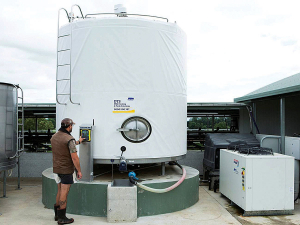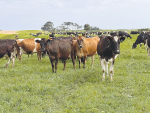Farmers must confirm periodically that their farm’s milk cooling system is performing to the standard set by the new rules.
Farm dairy operators must keep records to confirm that milk cooling requirements are being met and to confirm the capability of milk cooling equipment.
Milk cooling performance should ideally be monitored monthly, but as a minimum must be monitored and recorded about the time of the expected peak milk production and in February.
Each performance check must cover at least two consecutive milkings and the records must include the temperature of milk in each bulk milk tank immediately prior to the start of milking, the times milking starts and is completed, and the temperature of the milk in the bulk milk tank at the completion of milking.
Temperature measurements and recording can be done using several options: an electronic monitoring system, a chart recorder or manual measurements.
The accuracy of the temperature measurement device must be known because the data collected is an official record.
The dairy operator must move smartly to correct milk cooling performance if the information collected shows that milk is not being cooled according to the rules.
In such cases the milk cooling performance checks must be repeated to confirm compliance with the rules.
Milk not cooled according to the rules must be withheld from supply unless the milk has been assessed and confirmed as fit for purpose by the operator and/or dairy company.


















